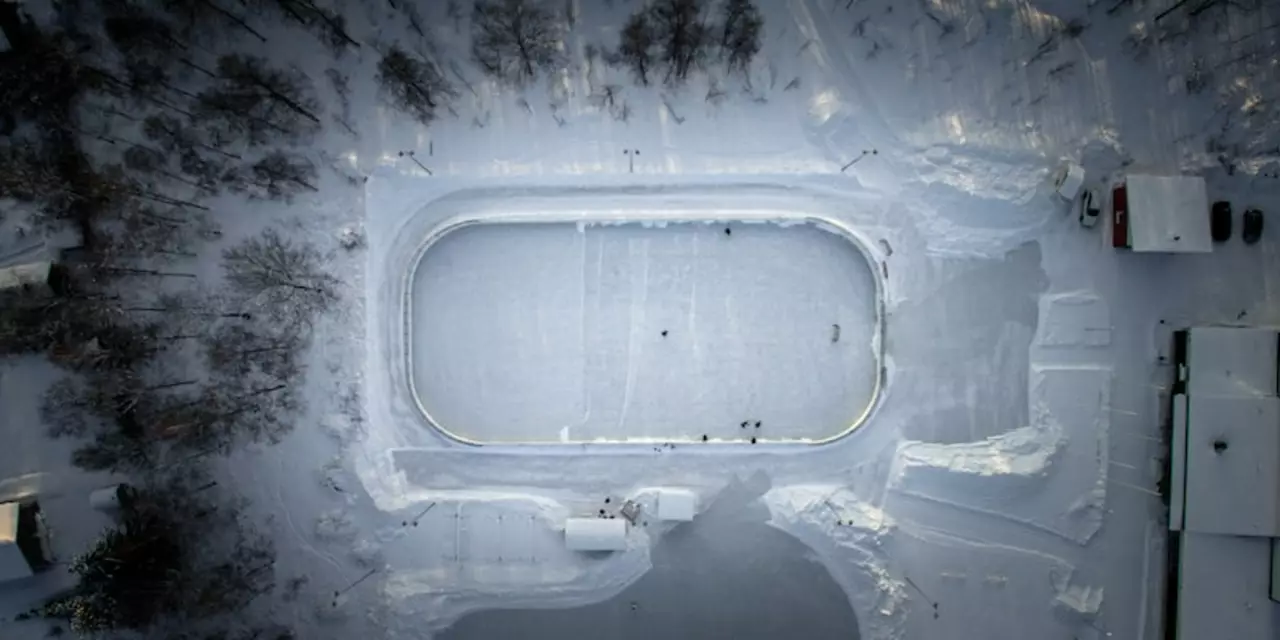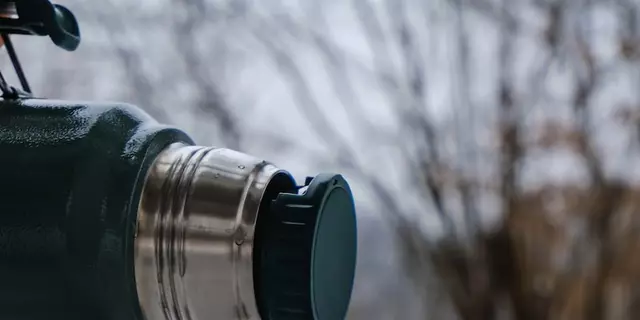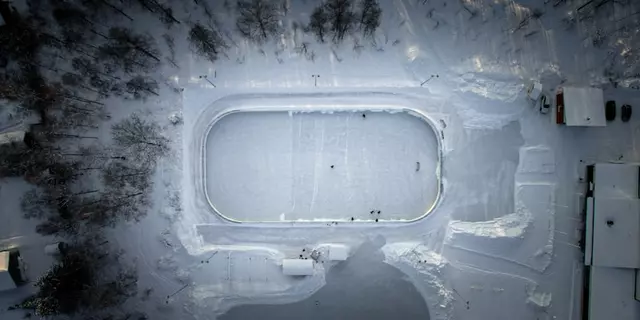
The Benefits of Starting Ice Hockey Training Later in Life
Ice hockey is a popular sport that’s played all around the world, and it can be a great way to stay active and enjoy some friendly competition. But many people think that you need to start playing hockey when you’re young in order to be successful at it. However, this isn’t necessarily true. There are many benefits to starting ice hockey training later in life, even if you’re in your twenties.One of the biggest benefits of starting ice hockey training later in life is that you’re more likely to have a better understanding of the game. When you’re younger, you may not be able to fully comprehend the complexities of the sport, and you may not have the same level of skill as someone who has been playing since they were a child. But if you start playing in your twenties, you have more time to learn the rules and strategies, as well as hone your skills.
Another advantage of starting ice hockey training later in life is that you’ll have more time to focus on the physical aspects of the game. At a younger age, you may be more focused on the social aspect of the sport, such as making friends and having fun. But when you’re older, you’ll have more time to dedicate to improving your physical conditioning and strength, which will help you become a better player.
Finally, starting ice hockey training later in life can help you become more confident in your abilities. When you’re younger, you may be more intimidated by the other players, but when you’re older, you’ll have more experience and will be more confident in your abilities. This can help you become a more successful player.
So if you’re wondering if it’s too late to start playing ice hockey, the answer is no. There are many benefits to starting ice hockey training later in life, and it could even be the key to achieving success in the sport. So don’t be afraid to try something new and give it a go!
Understanding the Basics of Ice Hockey for Late Starters
Ice hockey may seem daunting to someone just starting out, especially if they are over the age of 20. However, it is never too late to learn a new sport. With a few basics, you can be well on your way to becoming an ice hockey player.The most important thing to understand about playing ice hockey is the ice rink. The ice rink is the playing field for ice hockey. It is a large, rectangular sheet of ice that is divided into three zones. The left and right sides are known as the attacking and defensive zones, respectively. The center of the rink is known as the neutral zone. The goal lines are located in the attacking and defensive zones.
The second thing to understand about ice hockey is the equipment. Players will need a variety of equipment to play ice hockey, including skates, a helmet, protective padding, and a hockey stick. The skates are designed to provide traction on the ice, while the helmet and padding protect the player from collisions with other players or the boards. The hockey stick is used to shoot and pass the puck.
The third and final thing to understand about ice hockey is the rules and regulations. Ice hockey has a variety of rules and regulations that players must adhere to while playing. These rules include the number of players on the ice, the size of the rink, the type of puck used, and the length of the game. Understanding these rules is essential for all ice hockey players.
It is never too late to learn a new sport, and ice hockey is no exception. With just a few basics and some practice, anyone over the age of 20 can become an ice hockey player.
How to Overcome Challenges of Beginning Ice Hockey at 20
No matter how old you are, it is never too late to learn something new! Ice hockey is a great sport that can be enjoyed by people of all ages. If you have decided to take up ice hockey at the age of twenty, you may be feeling a bit daunted by the challenges you may face. However, don’t let that discourage you – by following these tips you can easily overcome any challenges you may encounter.1. Invest in the right gear: The most important thing when learning to play ice hockey is having the right gear. Make sure that you invest in the best quality gear that fits you properly so that you can play safely and comfortably.
2. Take lessons: Even if you are an experienced athlete, it is important to take lessons and learn the basics of the game. Taking lessons will also help you to develop proper technique and form.
3. Practice regularly: If you want to improve your skills, you need to practice regularly. Find a practice rink and try to get out on the ice as often as possible.
4. Find a team: Joining a team is a great way to have fun and improve your game. If you’re over 20, there are adult leagues you can join.
5. Have fun: Above all, remember to have fun when you’re learning ice hockey. Don’t be too hard on yourself and don’t be afraid to make mistakes. Enjoy the experience and you’ll be surprised at how quickly you can improve.
So don’t let your age discourage you from learning how to play ice hockey. With the right attitude and some dedication, you can easily overcome any challenges you may face.
What to Expect When Starting Ice Hockey at 20
Learning ice hockey at any age can be intimidating, but starting at 20 can be especially daunting. It's never too late to start learning a new sport, but you should be aware of what to expect when starting ice hockey at 20.First, you should expect to be behind your peers who started ice hockey at a younger age. It will take more effort to catch up to them, but with the right practice and dedication, you can still make progress. You may find that you are more easily winded than younger players, and your muscles may not be as strong. This can be frustrating, but it's important to remember that you can still improve with practice and improved fitness.
You should also expect to make plenty of mistakes as you learn the game. Even experienced players make mistakes, and it's important to remember that mistakes are part of the learning process. Don't be too hard on yourself - take mistakes as an opportunity to learn and grow.
It's also important to remember to have fun when starting ice hockey at 20. It may seem intimidating at first, but with the right attitude and support, it can be an enjoyable and rewarding experience. Don't forget to enjoy the journey and be proud of yourself for taking on a new challenge.
Starting ice hockey at 20 can be daunting, but it's never too late to learn a new sport. With the right attitude, dedication, and support, you can still make progress and have fun in the process.
Strategies for Succeeding in Ice Hockey Despite Starting Late
Starting late in a sport can be discouraging, especially if the sport is highly competitive. However, it is never too late to try something new and to challenge yourself to succeed. If you are determined to learn and play ice hockey, here are some strategies that can help you succeed despite starting late:1. Practice hard and often. Ice hockey is a fast-paced and demanding sport that requires regular practice in order to master the skills needed to succeed. Dedicate time to practice every day, and make sure to focus on the basics of the game, such as skating, stick handling, and shooting.
2. Find a mentor. Learning from someone with experience can be invaluable. Find a coach or mentor who can help you develop your skills, give you advice, and motivate you to keep improving.
3. Play with people of different skill levels. Playing with players of different skill levels can help you become a better player. Playing with more experienced players can push you to develop your skills and improve, while playing with less experienced players can help you practice your teaching and leadership skills.
4. Set goals and track your progress. Set short-term and long-term goals for yourself, and track your progress to ensure that you are on the right track. This will help you stay motivated and focused on your goals.
5. Have fun and enjoy the process. Learning a new sport can be hard and challenging, but it can also be a lot of fun. Enjoy the process of learning the game and celebrate your successes along the way.




